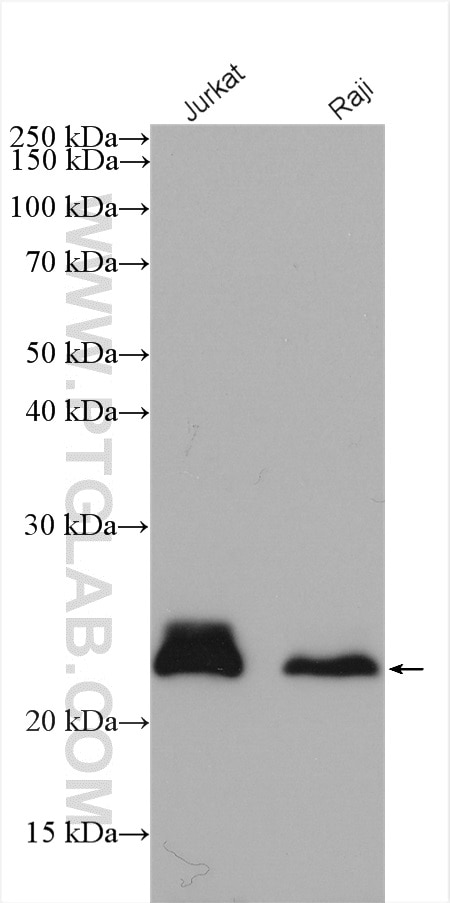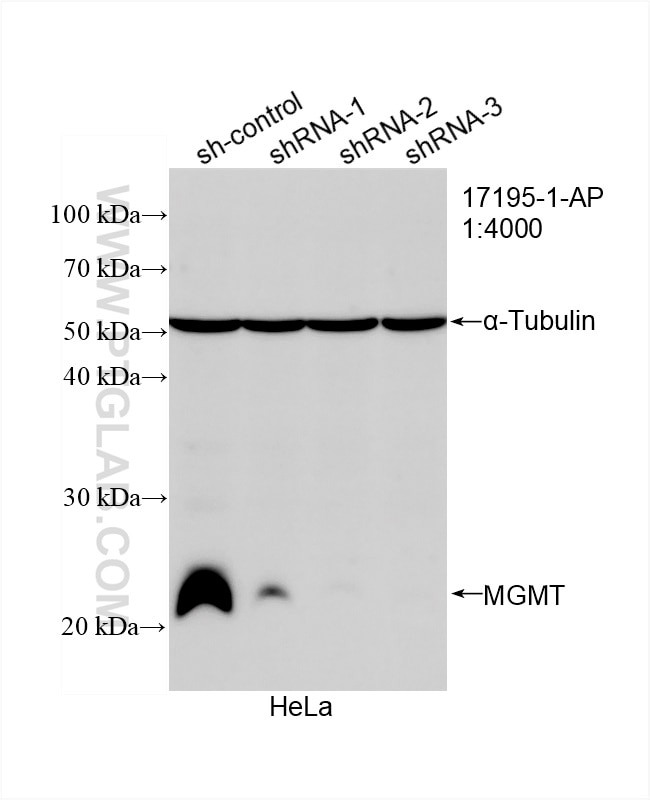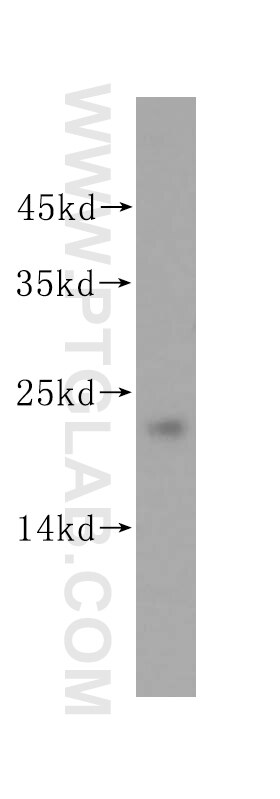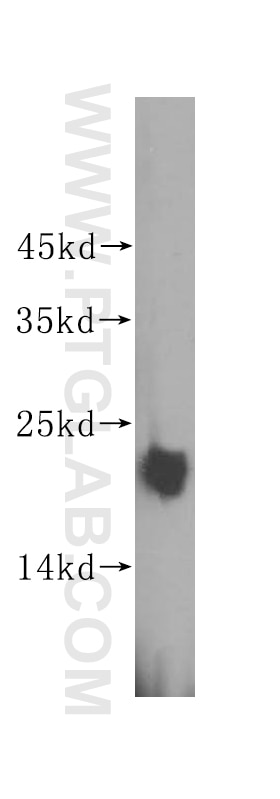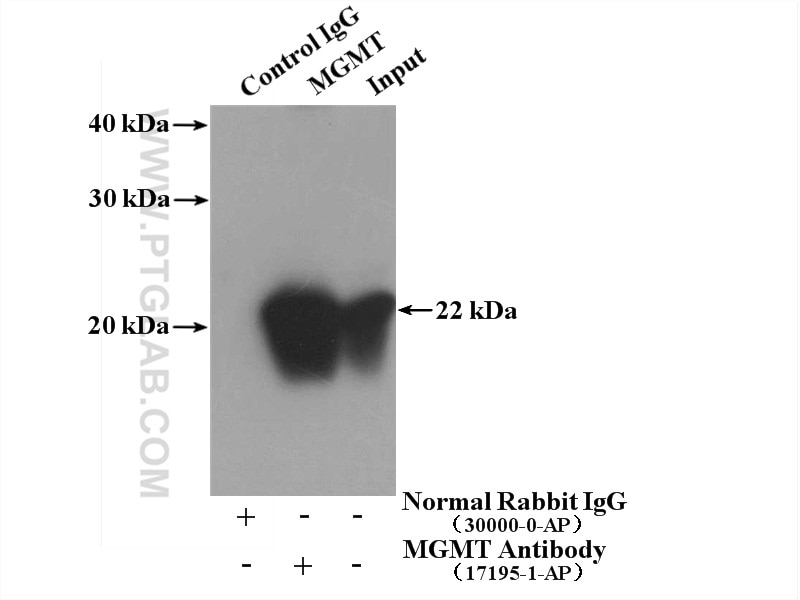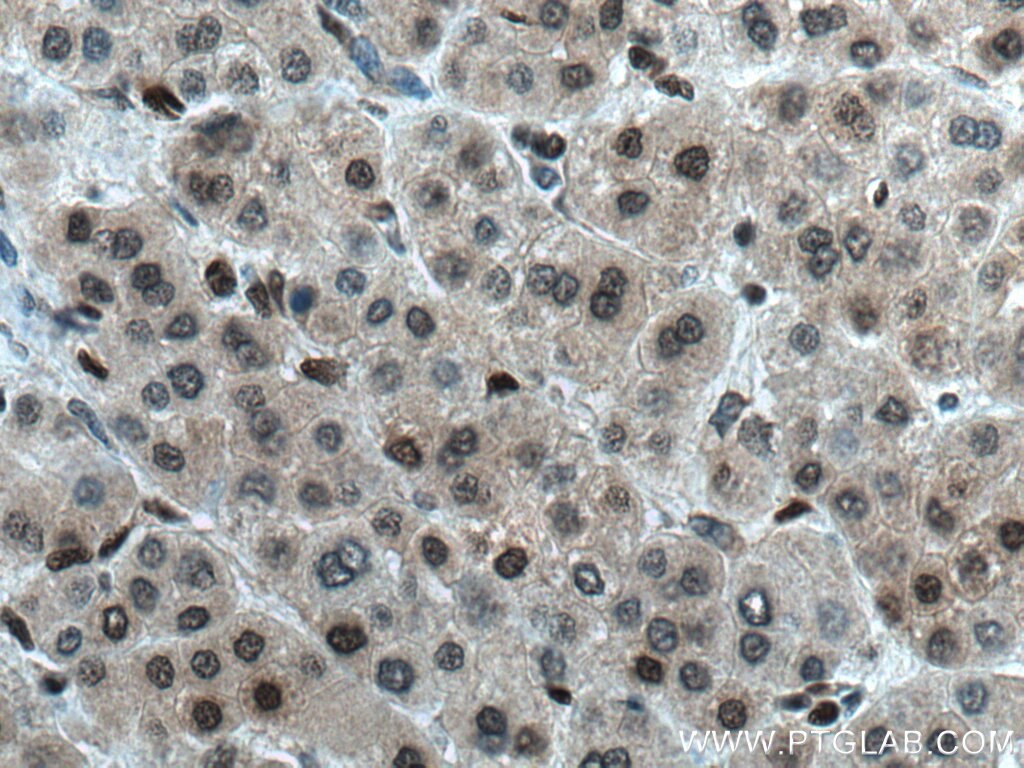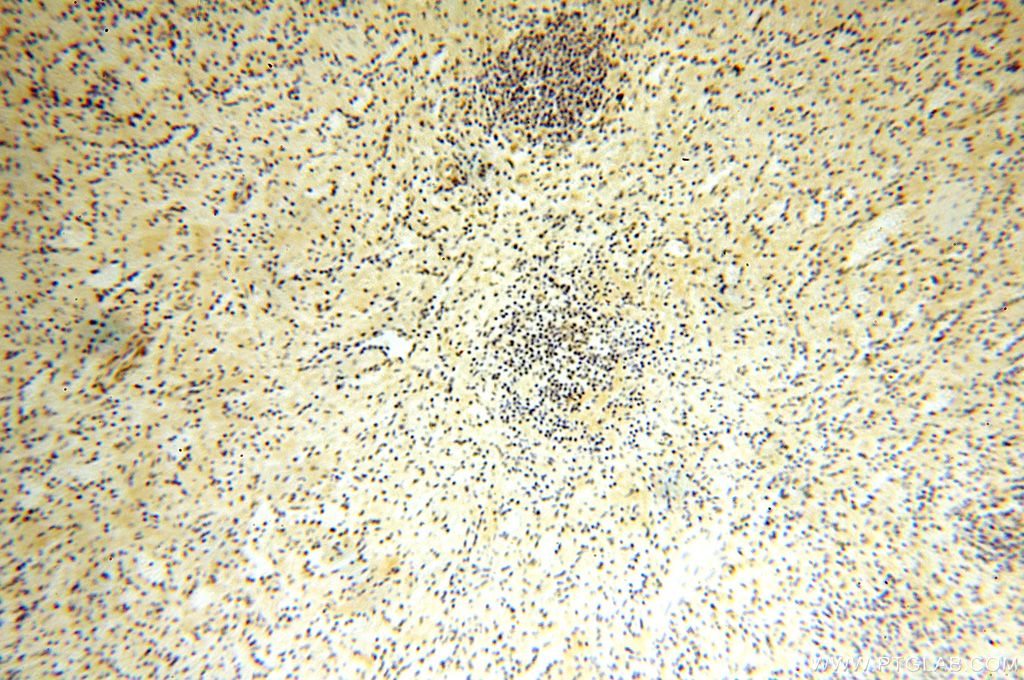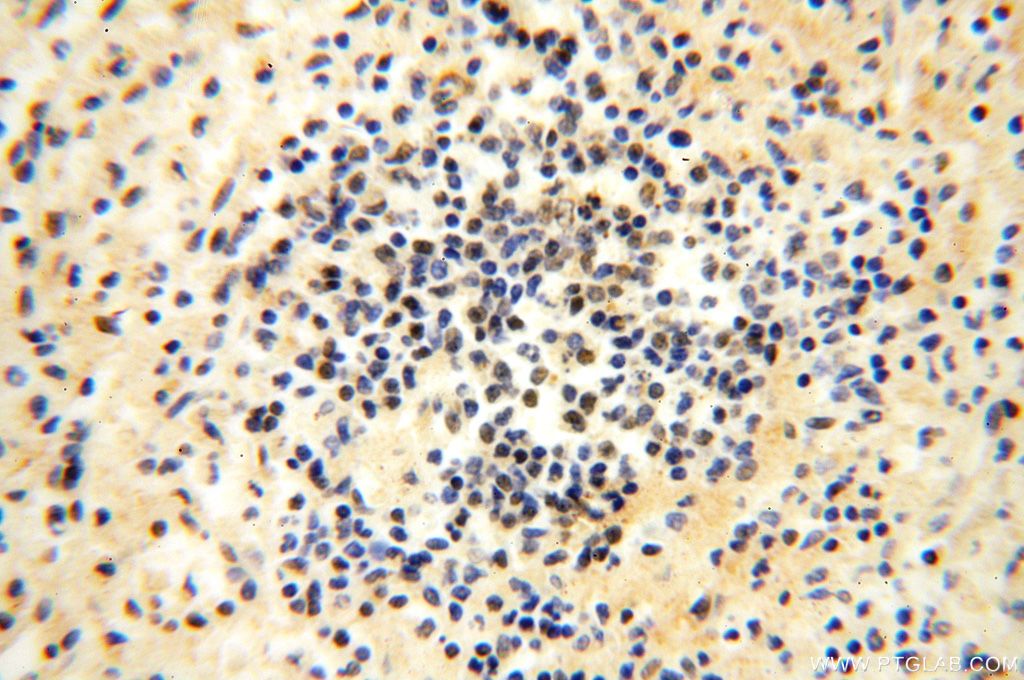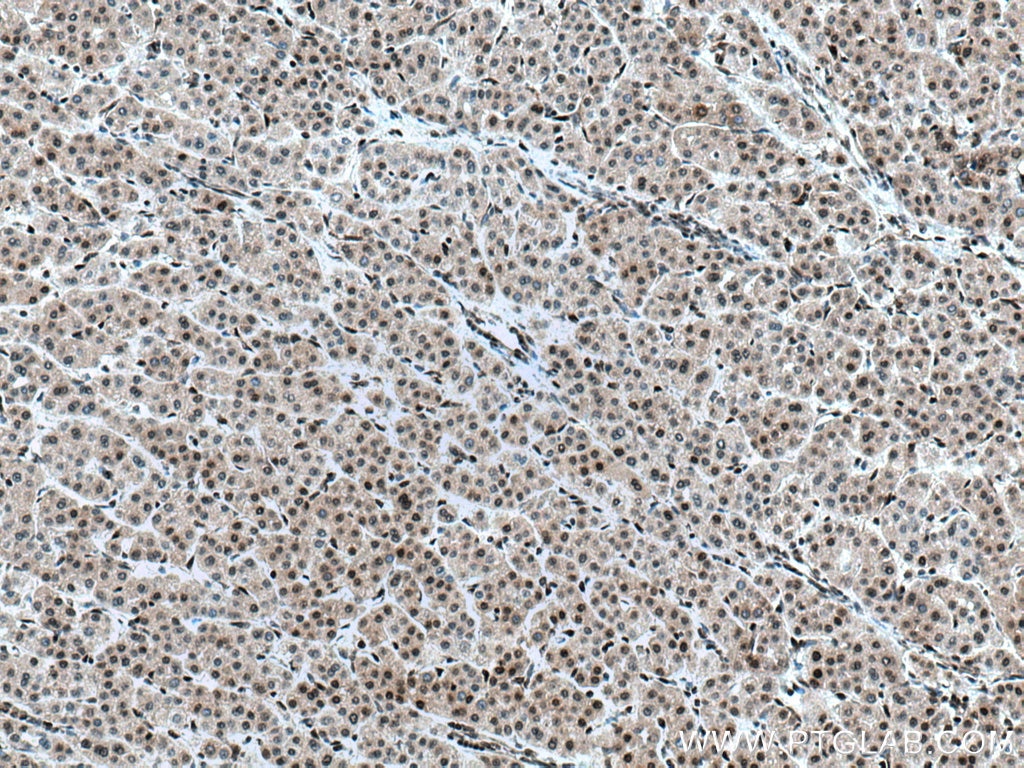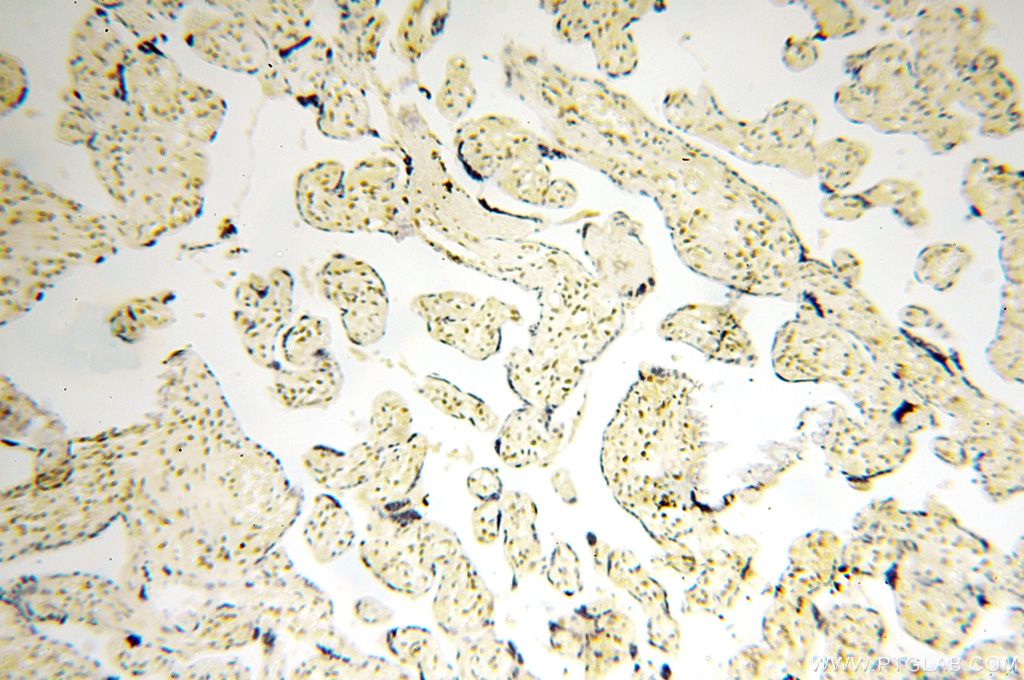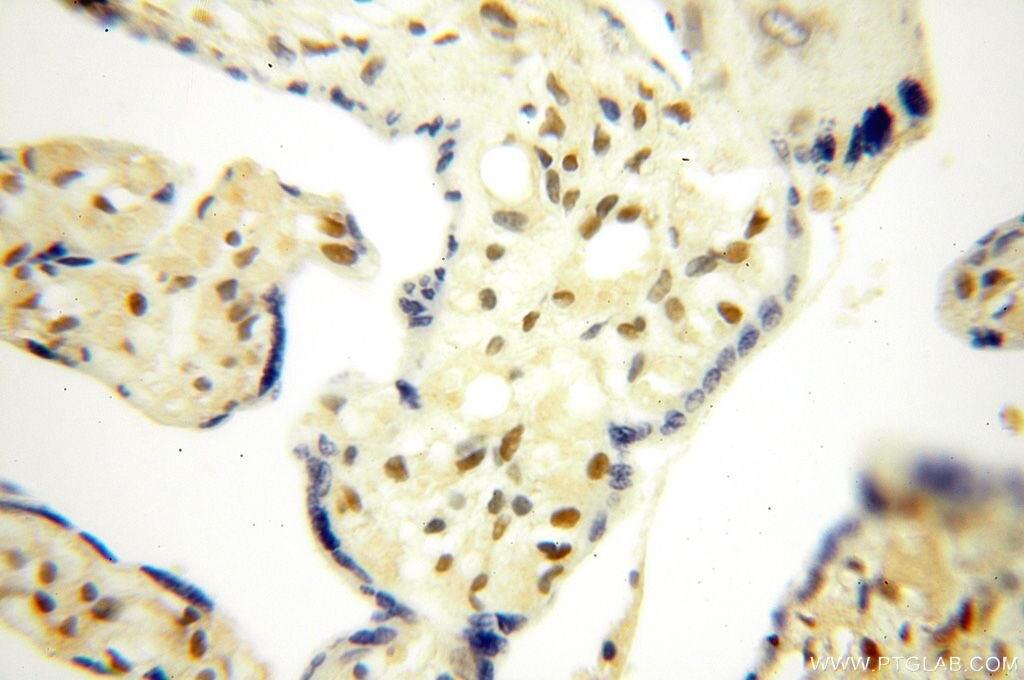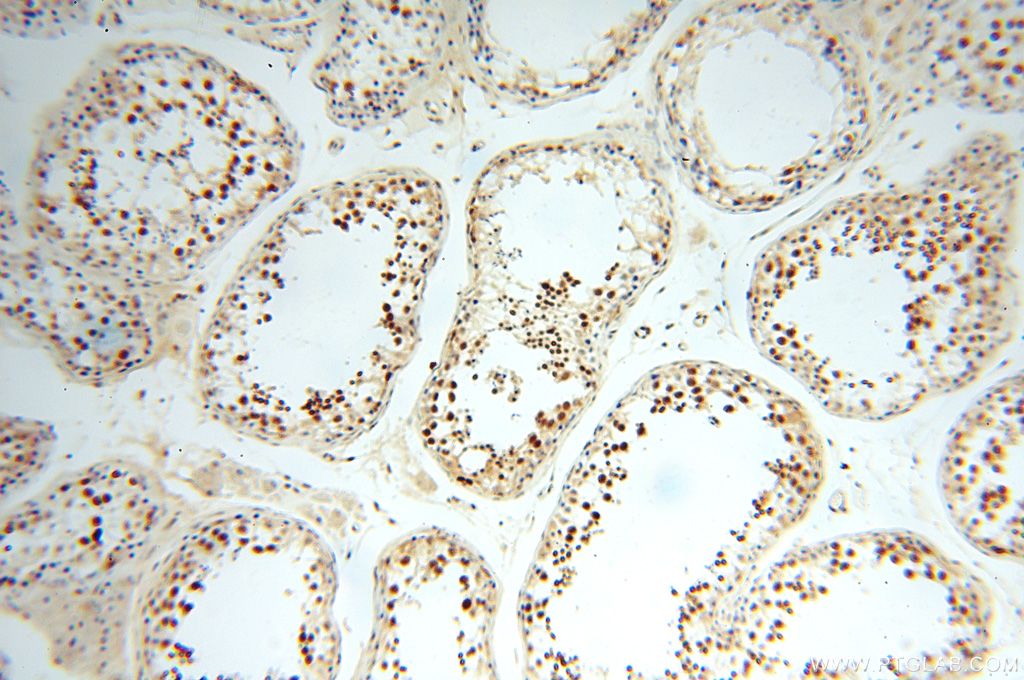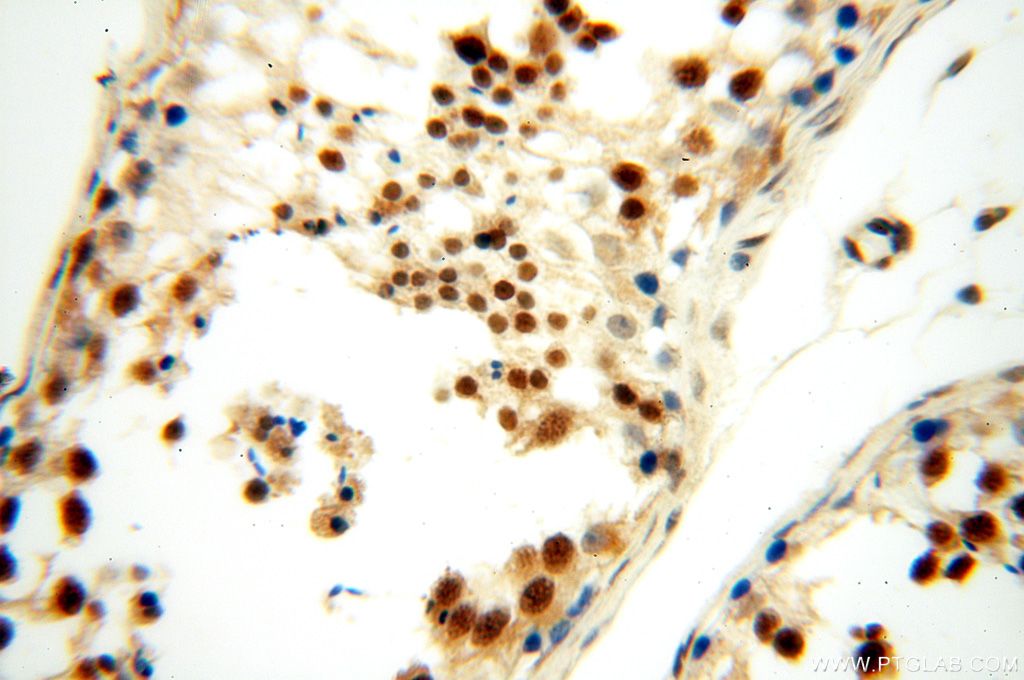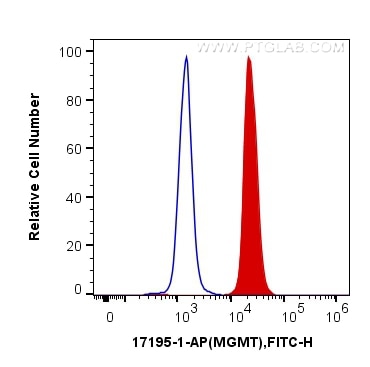- Featured Product
- KD/KO Validated
MGMT Polyclonal antibody
MGMT Polyclonal Antibody for FC, IHC, IP, WB, ELISA
Host / Isotype
Rabbit / IgG
Reactivity
human
Applications
WB, IP, IHC, IF, FC, CoIP, ELISA
Conjugate
Unconjugated
Cat no : 17195-1-AP
Synonyms
Validation Data Gallery
Tested Applications
| Positive WB detected in | Jurkat cells, MCF-7 cells, HeLa cells, Raji cells |
| Positive IP detected in | Jurkat cells |
| Positive IHC detected in | human liver cancer tissue, human placenta tissue, human spleen tissue, human testis tissue Note: suggested antigen retrieval with TE buffer pH 9.0; (*) Alternatively, antigen retrieval may be performed with citrate buffer pH 6.0 |
| Positive FC detected in | Jurkat cells |
Recommended dilution
| Application | Dilution |
|---|---|
| Western Blot (WB) | WB : 1:1000-1:6000 |
| Immunoprecipitation (IP) | IP : 0.5-4.0 ug for 1.0-3.0 mg of total protein lysate |
| Immunohistochemistry (IHC) | IHC : 1:50-1:500 |
| Flow Cytometry (FC) | FC : 0.20 ug per 10^6 cells in a 100 µl suspension |
| It is recommended that this reagent should be titrated in each testing system to obtain optimal results. | |
| Sample-dependent, Check data in validation data gallery. | |
Published Applications
| WB | See 17 publications below |
| IHC | See 2 publications below |
| IF | See 1 publications below |
| CoIP | See 1 publications below |
Product Information
17195-1-AP targets MGMT in WB, IP, IHC, IF, FC, CoIP, ELISA applications and shows reactivity with human samples.
| Tested Reactivity | human |
| Cited Reactivity | human |
| Host / Isotype | Rabbit / IgG |
| Class | Polyclonal |
| Type | Antibody |
| Immunogen | MGMT fusion protein Ag9996 |
| Full Name | O-6-methylguanine-DNA methyltransferase |
| Calculated Molecular Weight | 22 kDa |
| Observed Molecular Weight | 22 kDa |
| GenBank Accession Number | BC000824 |
| Gene Symbol | MGMT |
| Gene ID (NCBI) | 4255 |
| RRID | AB_2143221 |
| Conjugate | Unconjugated |
| Form | Liquid |
| Purification Method | Antigen affinity purification |
| Storage Buffer | PBS with 0.02% sodium azide and 50% glycerol pH 7.3. |
| Storage Conditions | Store at -20°C. Stable for one year after shipment. Aliquoting is unnecessary for -20oC storage. 20ul sizes contain 0.1% BSA. |
Background Information
MGMT is the primary vehicle for cellular removal of alkyl lesions from the O-6 position of guanine and the O-4 position of thymine. While key to the maintenance of genomic integrity, MGMT also removes damage induced by alkylating chemotherapies, inhibiting the efficacy of cancer treatment [PMID:23065697].MGMT is the primary mechanism for the removal of alkylation damage from the O-6 position of guanine [PMID: 17482892]. The O-6 position of guanine is one of several positions in DNA bases to which alkyl groups are attached in SN1 alkylation reactions, and this repair has been well-characterized in mammalian cells and via MGMT homologs in bacteria and Archaea.[PMID: 10767620]
Protocols
| Product Specific Protocols | |
|---|---|
| WB protocol for MGMT antibody 17195-1-AP | Download protocol |
| IHC protocol for MGMT antibody 17195-1-AP | Download protocol |
| IP protocol for MGMT antibody 17195-1-AP | Download protocol |
| Standard Protocols | |
|---|---|
| Click here to view our Standard Protocols |
Publications
| Species | Application | Title |
|---|---|---|
Cell Res DNA damage triggers tubular endoplasmic reticulum extension to promote apoptosis by facilitating ER-mitochondria signaling. | ||
Nucleic Acids Res KDM6B promotes PARthanatos via suppression of O6-methylguanine DNA methyltransferase repair and sustained checkpoint response. | ||
Clin Transl Med LncRNA BC promotes lung adenocarcinoma progression by modulating IMPAD1 alternative splicing | ||
Oncogene GBP3 promotes glioblastoma resistance to temozolomide by enhancing DNA damage repair. | ||
Oncogenesis GSK3β palmitoylation mediated by ZDHHC4 promotes tumorigenicity of glioblastoma stem cells in temozolomide-resistant glioblastoma through the EZH2-STAT3 axis. | ||
Arch Toxicol Global and MGMT promoter hypomethylation independently associated with genomic instability of lymphocytes in subjects exposed to high-dose polycyclic aromatic hydrocarbon. |
